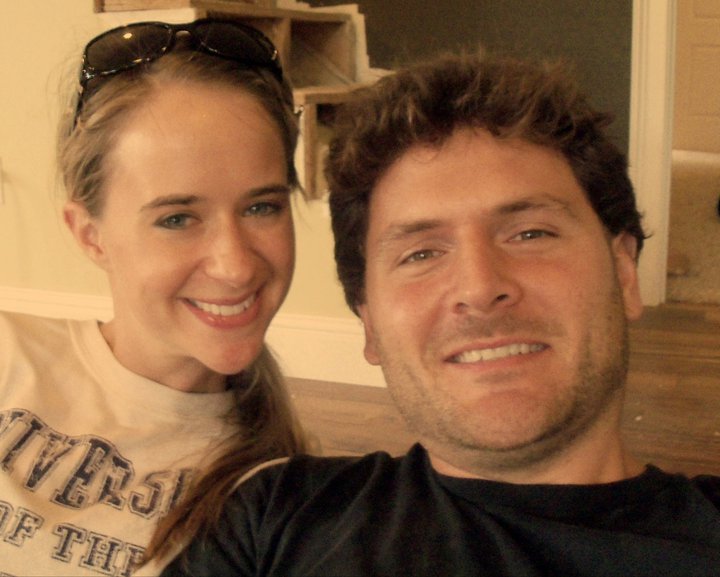
Love and Toothpaste Tubes
Our three stairstep girls were in the back of the minivan as we drove to a friends’ house for supper.
Collectively, I had labored thirty-eight hours to bring them into the world.
I said, “Tomorrow’s Mother’s Day.”
My husband groaned.
“I knew you forgot.”
He said, “You need to remind me.”
“I’ve only been a mother for nine years.”
“There are too many holidays. I can’t remember them all.”
I said, “Maybe I should set alarms on your phone.”
“You should. Set them two weeks in advance.”
The next afternoon, Mother’s Day, my husband picked up sushi and snacks in town, which we spread out on the island for our mothers and guests. Afterward, he cleaned up the kitchen while I tended the chickens in the rain. I tried listening to an audiobook on my iPhone but gave up because my cracked screen kept getting wet.
In the morning, my cracked screen faded to black. I decided to implement a YouTube tutorial uploaded by a twelve-year-old Scottish tech wizard and pushed all my phone’s buttons at once.
Now my screen went really black.
My manuscript had been with a literary agency for two months. In two months, I had used my phone to check my email approximately 1,278 times.
And now, I didn’t have a phone. We also don’t have WiFi (for hippie reasons I won’t go into here), so I couldn’t use my laptop. On Monday, I used my husband’s phone to check my email.
Nothing.
Tuesday is my day in town to clean the minivan, buy groceries, and sit at a coffee shop and write. I ordered a turmeric ginger tea and turned on the coffee shop’s WiFi. I signed into my email, but I needed my phone or my husband’s phone to confirm my identity.
I had neither.
I tried hacking into my email, but since I am nowhere near as tech savvy as the twelve-year-old Scottish YouTuber, my hacking didn’t get me far. Finally, I tried sending the numerical code to my husband’s phone, even though I knew it was pointless.
Staring pop-eyed at the email’s log in page, I didn’t notice the tall, bearded man walking through the coffee shop’s door.
He sat down across from me and smiled. “I found you,” he said.
It was my husband. He was wearing the “Catchin’ Deers” baseball cap I had gotten him as a joke for Christmas.
He studied my face. “Did you get the email?”
“What email?” But then I knew. The manuscript. My heart sank. “They said no.”
He nodded. “I saw you were trying to sign into your email, so I checked it. When I read the response, I knew I had to come find you.”
I touched my chest. “You came into town for me?”
He grinned. “Well, I was already on my way to Lowe’s.”
We hugged before he left. Afterward, I knew I couldn’t write, so I packed up my laptop, stowed it in the (clean) minivan, and started walking down the tree-lined street to the university campus.
Three years of work. Research. Drafting. Editing. Editing some more.
I had written the whole thing on spec (speculation: without a contract), and now my story might not ever materialize.
Walking by my favorite cottage with the oversized magnolia trees and cheerful mint green door, I remembered, of all things, a non-fiction book by late humorist Erma Bombeck titled, A Marriage Made in Heaven . . . or Too Tired for an Affair.
At that point, I was a twenty-two-year-old newlywed who’d spent the previous four years living and working in a freshman girl’s dorm and was now living in an apartment adjacent to our outlet grocery store with a taciturn mountain man who liked having his own toothpaste tube.
And then I read Erma Bombeck’s book. I laughed and I cried as I felt someone had given me a key to unlock marriage’s door.
The story I remember the most was when Erma Bombeck went to Los Angeles to work on a screenplay. The screenplay flopped, or maybe the television show got canceled. I can’t remember the details since I read the story twelve years ago, but what I do remember is how her husband, Bill, flew out to Los Angeles to help her pack up her apartment and come home.
That image of him—believing enough in her dreams to help her pursue them, and yet supporting her when those dreams fell through—always remained with me.
Twelve years later, that story had become personal.
A few nights after I received the email, I was packing school lunches while my husband loaded the dishwasher. I apologized for the time and money I had already invested in the manuscript.
He shrugged and smiled. “It was worth the risk.”
Five simple words spoke to me on two levels—not only was writing on spec worth the risk, but I was worth the risk.
The risk of loving day after day, week after week, month after month . . . toothpaste tube after toothpaste tube, even though my hair gets wrapped around the lid.
That kind of support is worth far more than a Mother’s Day card and breakfast in bed—though, on second thought, I might just start setting those reminders on his phone.
Do you have someone who helps pick up your pieces? How does that support make you feel?


